Upper Land / Matango

Upper Land / Matango
February 28, 2021
The Upper Land probably gets its name from its placement north of the Gaia Lowlands. Its scenery is comparable to the sylvan countryside of the Lowlands, but its terrain is denser while also being sparsely populated. This gives it a more remote and mysterious feel. It’s home to the Kingdom of Matango and the Wind Palace, part of the Sprite Village. From Fantasy Anime:
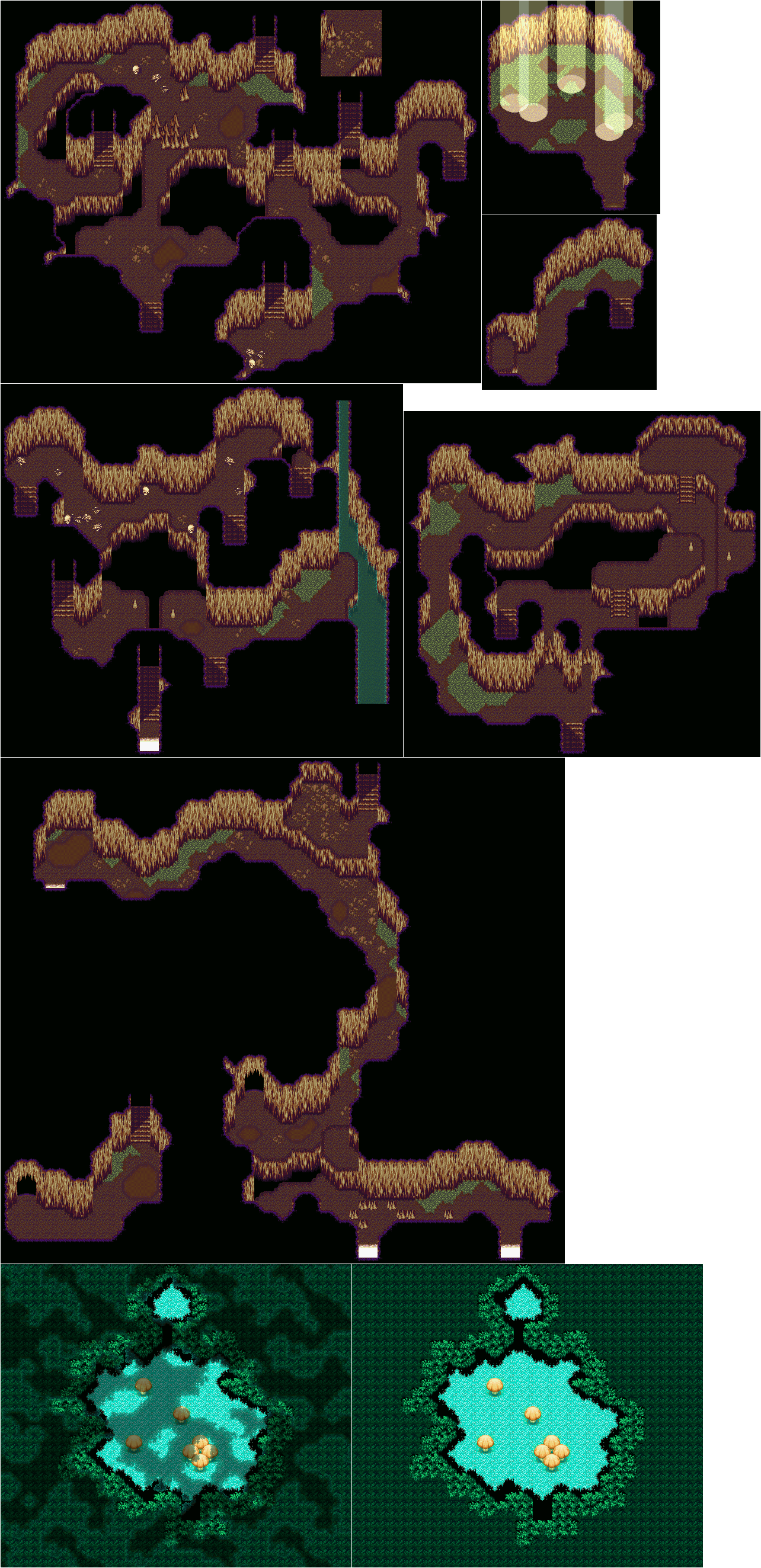
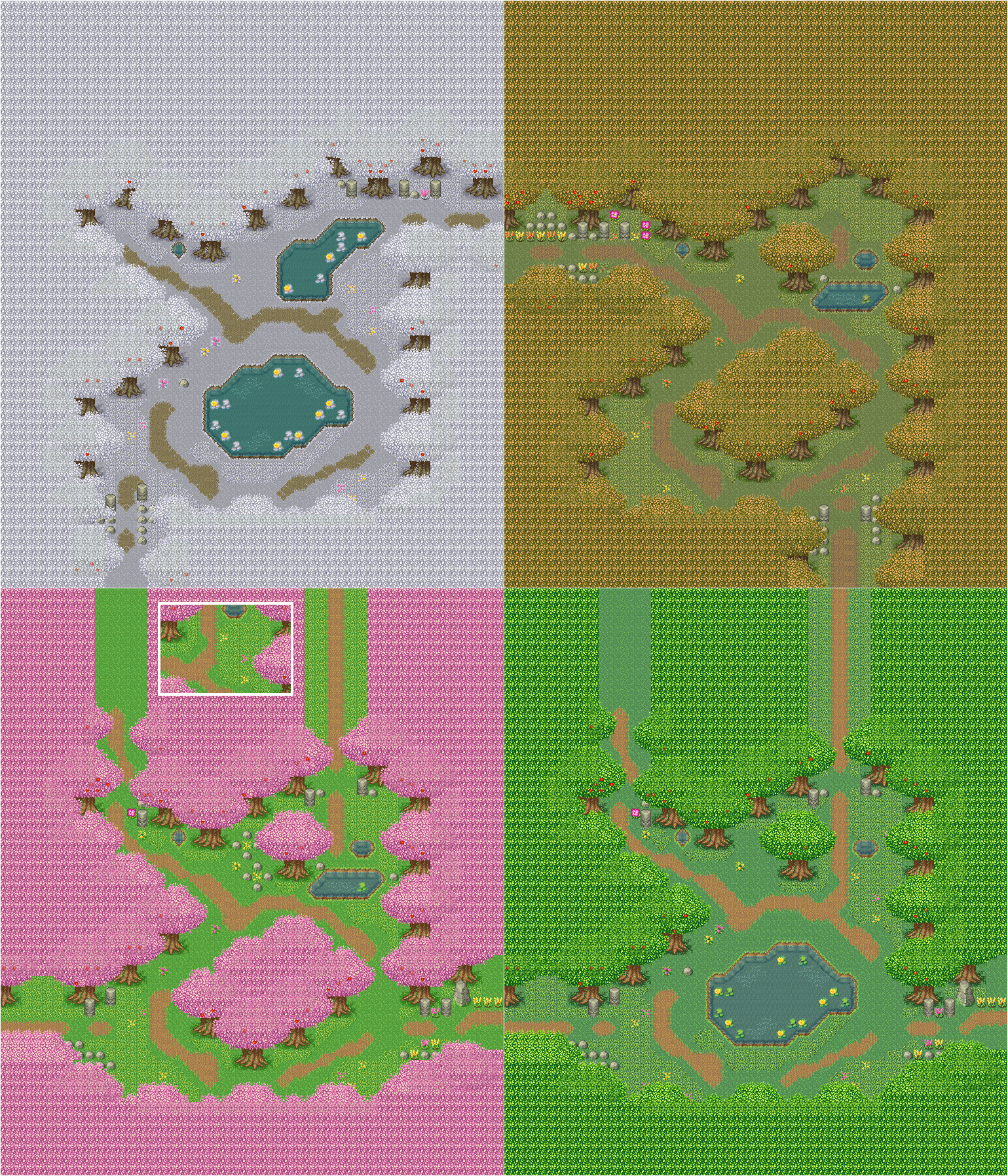
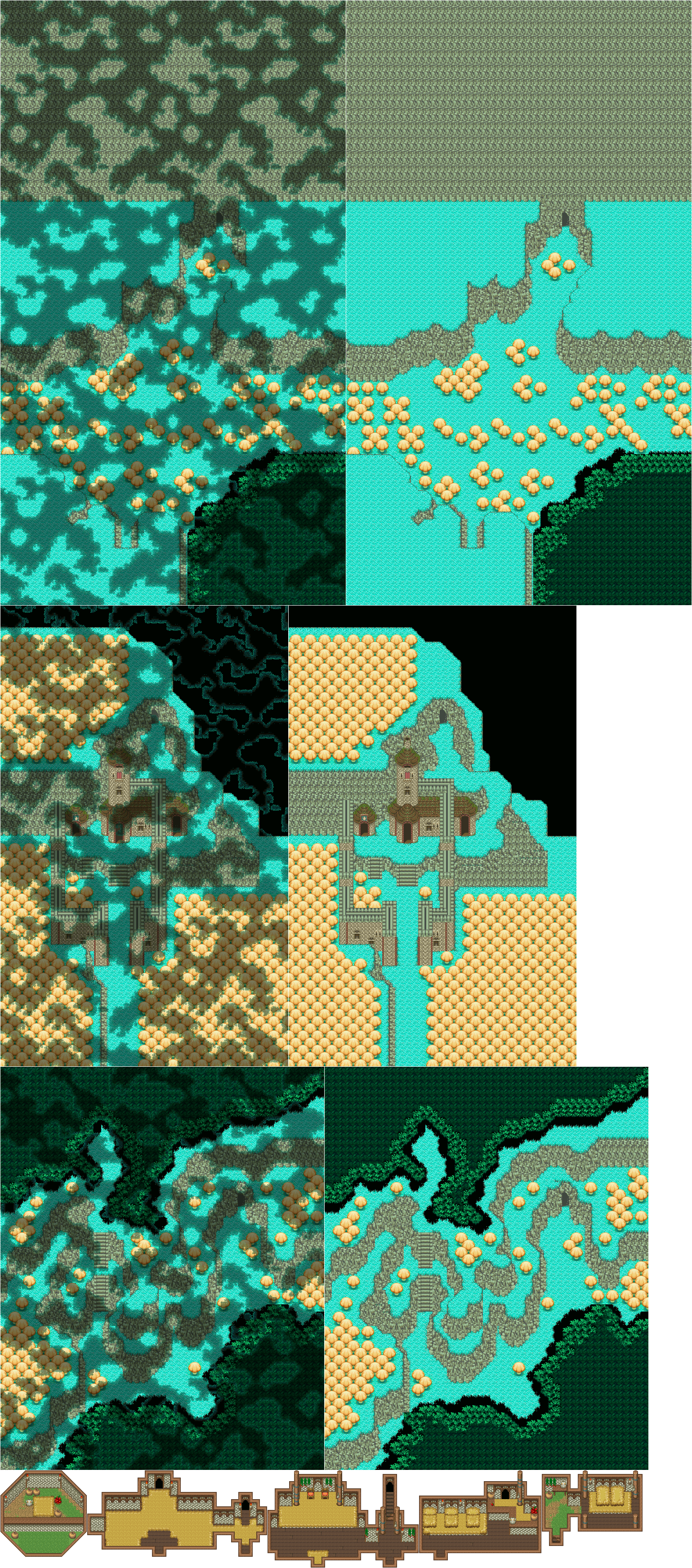
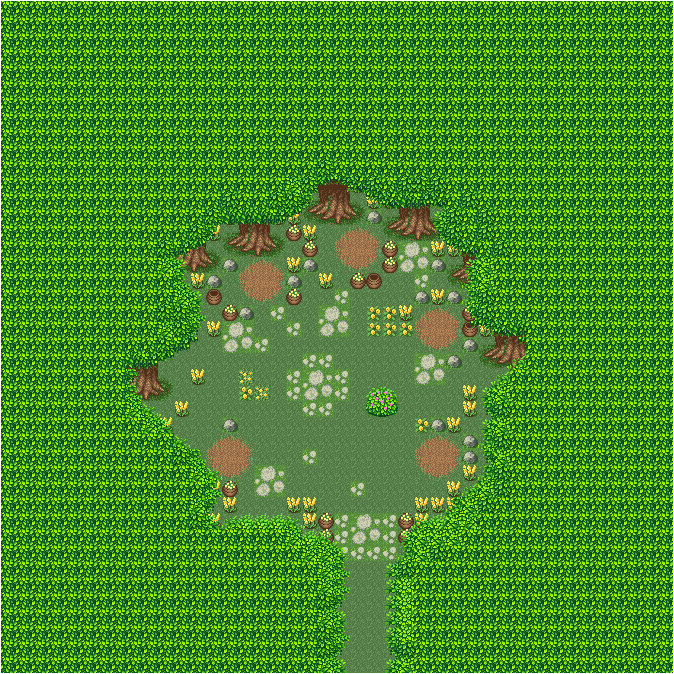
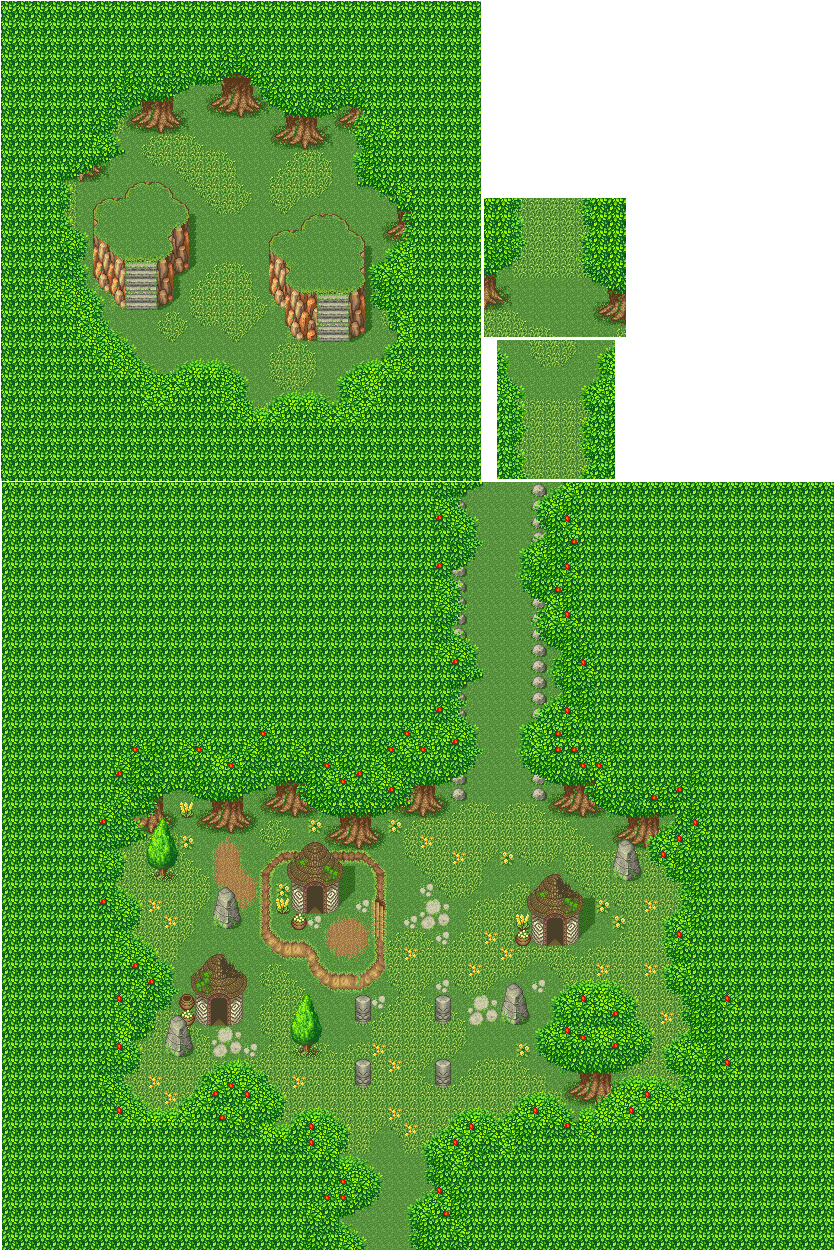
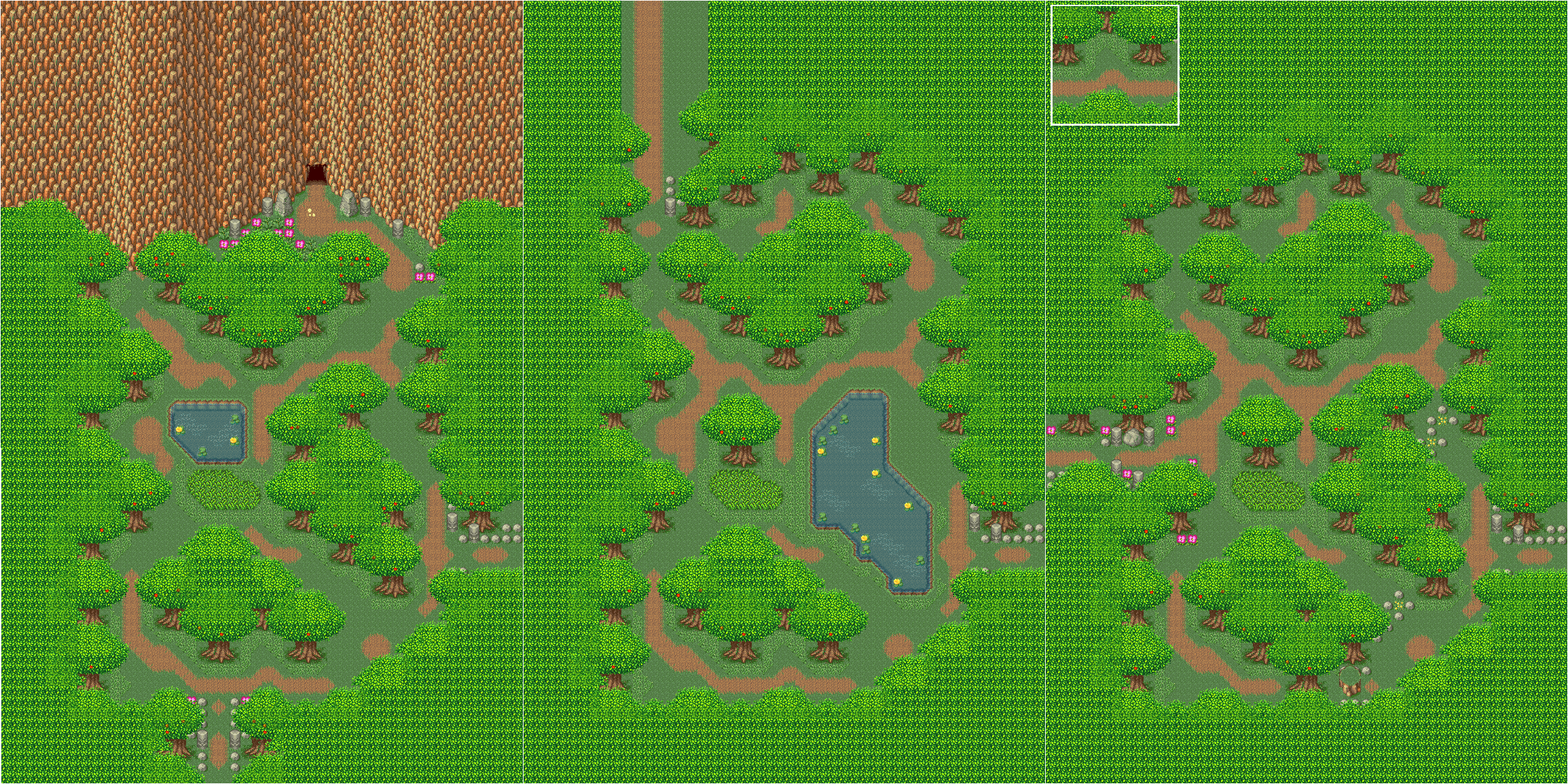
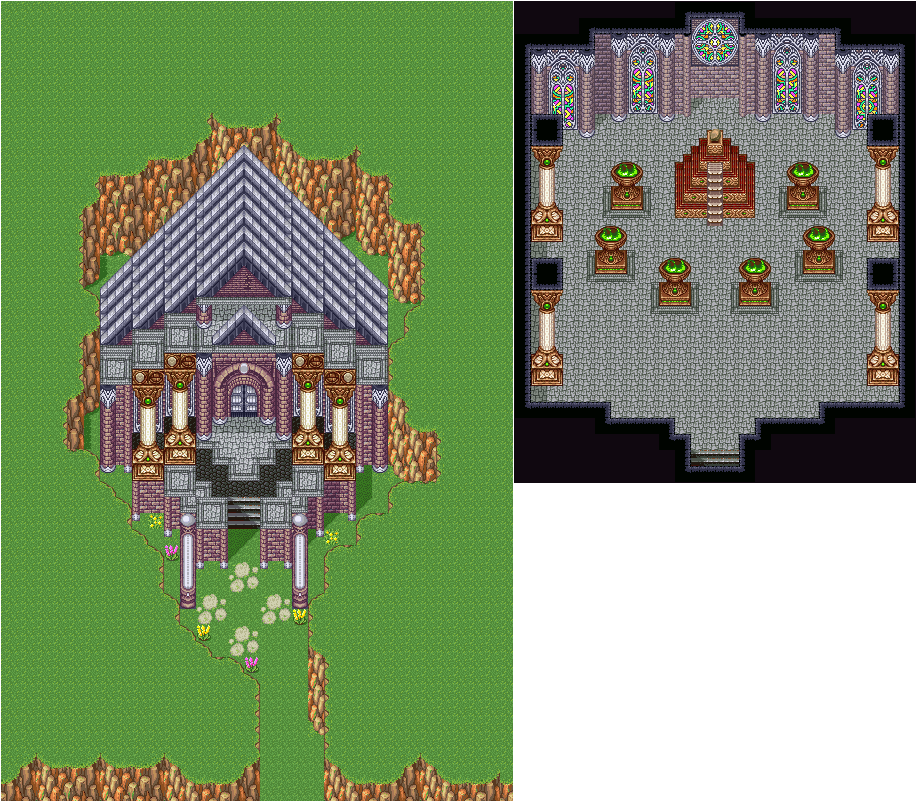
Development
The Upper Land is yet another area with ambitious plans in Map I:
We were back to basics by IIa:
You’ll note that the map was reoriented, and Kakarra was now attached to this part of the world. Other than a river, not much changed in IIb:
Some closeups of Matango’s prerelease castle during IIb:
It more or less stayed the same for the main release (III). The path to the cannon travel was pushed further out. The Wind Palace area also received some detail:
Like Purim, Popoie has some screens that may be from a lost solo opening:
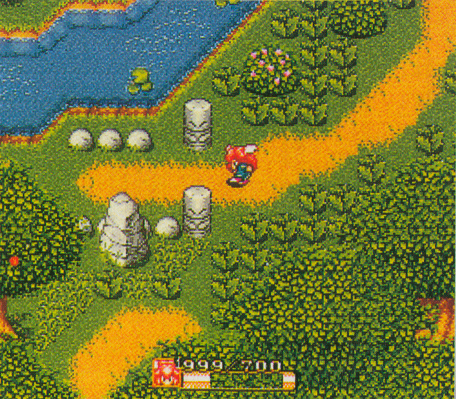
(May 28, 1993)
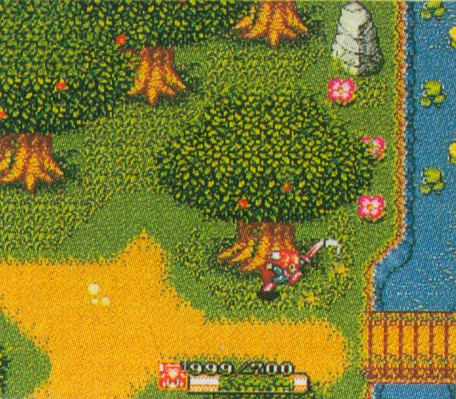
(May 28, 1993)
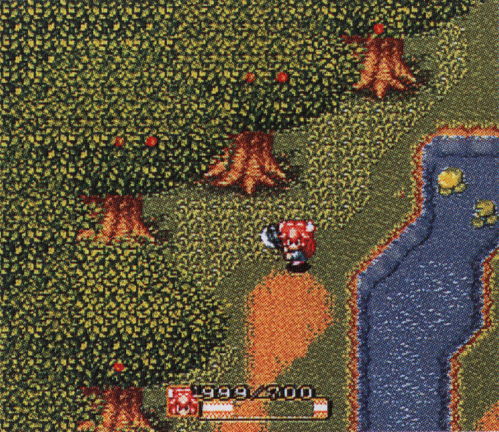
(May 28, 1993)
Other than some minor graphical differences, an early version of the sprite village shows that it didn’t change much during development. It’s been noted that there’s an unused door trigger for one of the huts, so you may have been able to enter them at some point.
One of the best finds is this unused map that was intended to be the Moogle Village. This is a late screenshot in a source that otherwise featured material from the final game, so it was one of the last cuts.
An in-game rendering by Tomm:
The Wind Palace is an interesting place. The interior only consists of the altar room, and despite having weapons drawn, there’s no enemies to be found. It may not shock you to learn that there was more planned here. The ROM contains an unused line that was supposed to be spoken by Grandpa, “The Empire sent monsters into the Palace!”
Take a look inside:
This map is designated #273 in the ROM. There’s an unused door that lands you in the middle of the bottom left corner. The map that directly precedes it (#272) is blank, but also has an unused door pointing to it. Given that they’re next to each other, it’s probable that #272 was a deleted area of the Wind Palace. It may have featured this screen with Neko, the only shot found so far of the lost scenario:
It gets more exciting. Take a look at this map:
This is #269, also close to the Wind Palace maps. In the final game, it’s used for the Underground Palace, the rest of whose maps are off somewhere else in the game’s memory. Taking a look at them out of context, they appear to be transitions between larger rooms. But as implemented, these rooms simply lead to one another, until you get to the center hallway that goes to Gnome. This area also has an unused door that lands you in a wall. All three unused doors we’ve mentioned are off by one value in the game’s code, indicating that they’re a lost set, almost certainly designed for the Wind Palace. I’ve adjusted the palette of the rooms to show how they may have looked.
The Wind Palace’s event flag stops abruptly, never incrementing past a small value. There are minimal pieces of event code that react to higher values, including Grandpa’s cut line. Other values correspond to a deleted boss fight: there’s three possible values depending on the state of the boss. Different music also plays when these phantom values are set.
Considering how much of this material remains in the code, it was probably a late change. (A huge thanks to Queue for the detailed explanation.)
Probably an early version of the path to Matango:
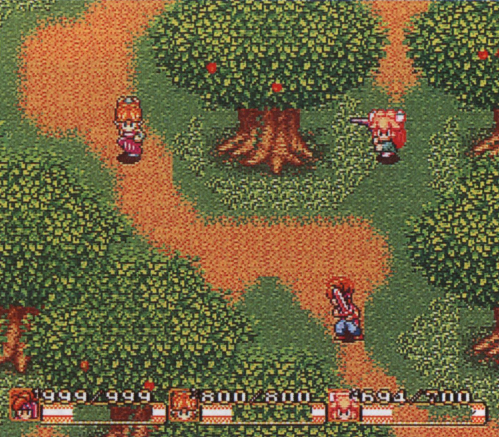
(May 1993)
These shots of Matango show a non-mushroom citizen (test?), and a bigger castle.
Your guess is as good as mine here:
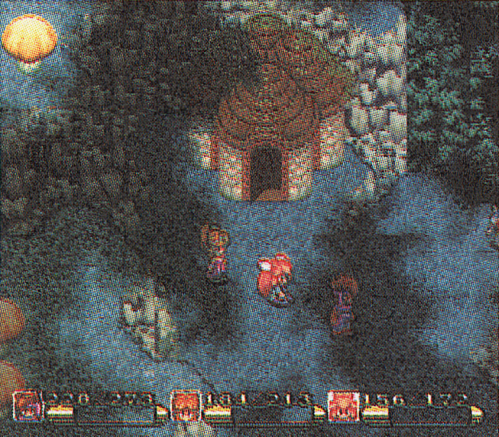
Moving on to the Dragon Hole, there’s a staircase that can’t be reached:
The stairs were never coded but they actually go to another area that can’t be accessed, and lead to a dead end:
To the right of the staircase in the first shot is another one that goes down to an open area with no purpose.
Or at least in the final. Like the Wind Palace, there’s enough leftover code from what was scrapped that we can piece things together. The map with the chasm has an unused door of the same type that’s used for teleportation, and for scenarios where you fall one level (think of the Tonpole boss battle in the Ice Palace). There are three unused adjacent map pieces that were likely part of an animation where the ground gave way and you fell if you tried to reach the stairs. However, as the stairs have no triggers on either floor, it’s unknown if this was just to annoy you (i.e. it’s just a trap and the stairs and partial upper floor were for the sake of completion), or if there was even more to this scenario that’s lost to time.

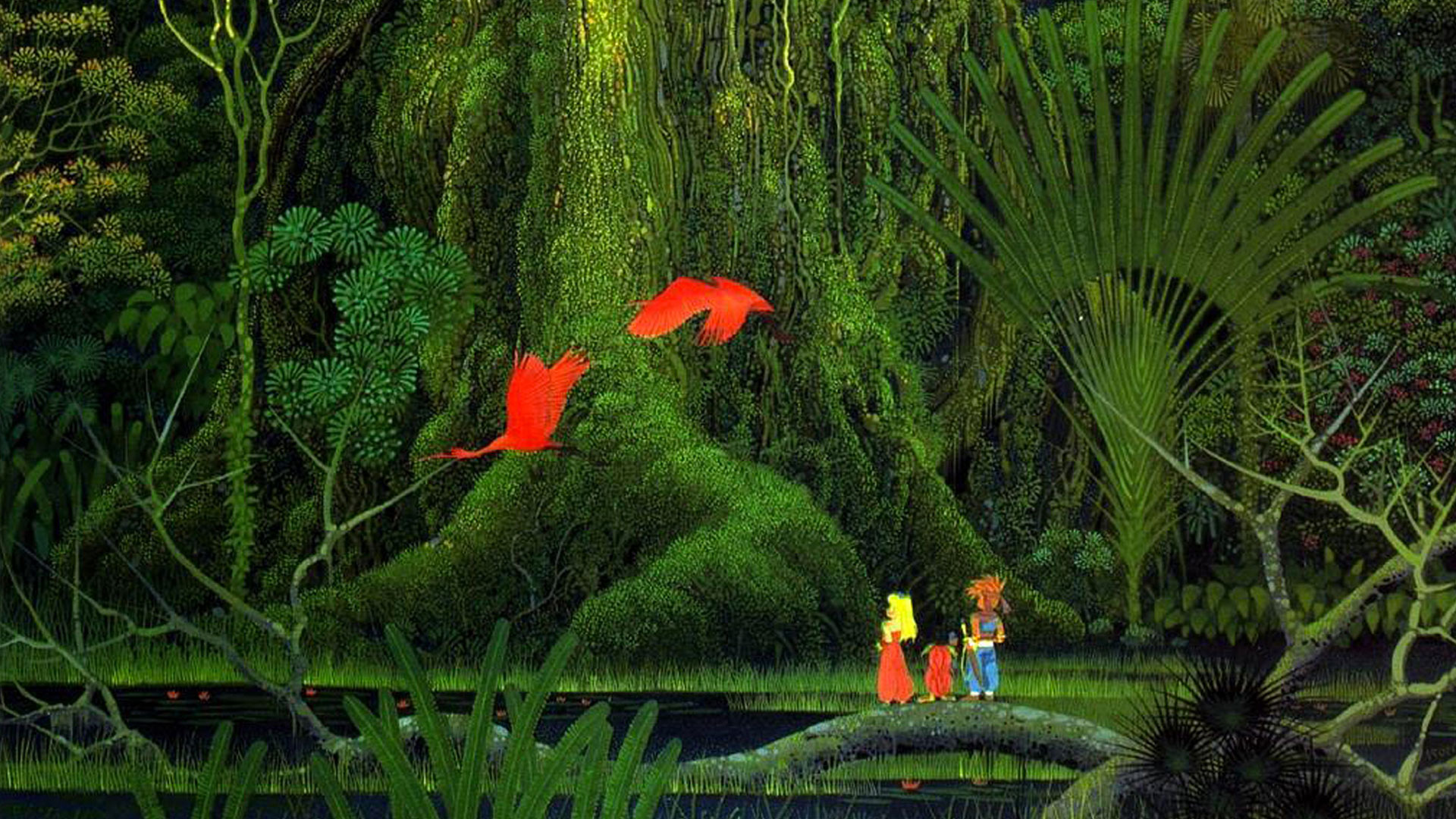

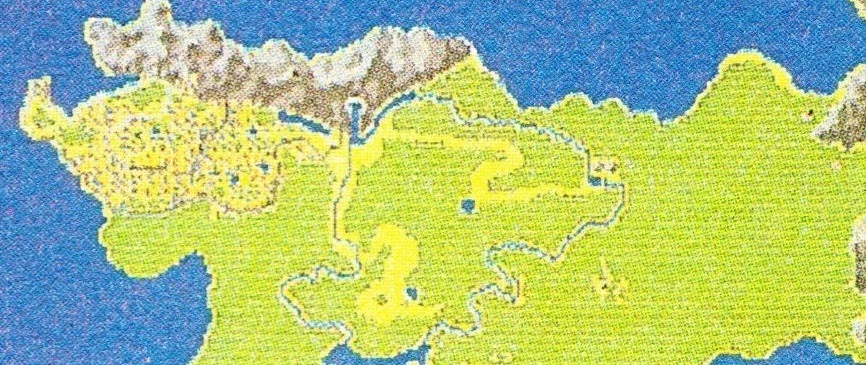
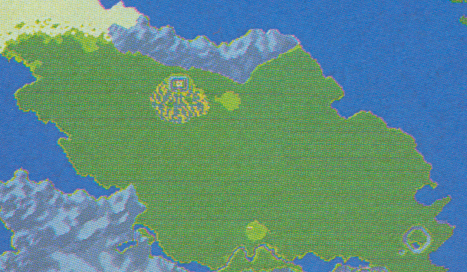
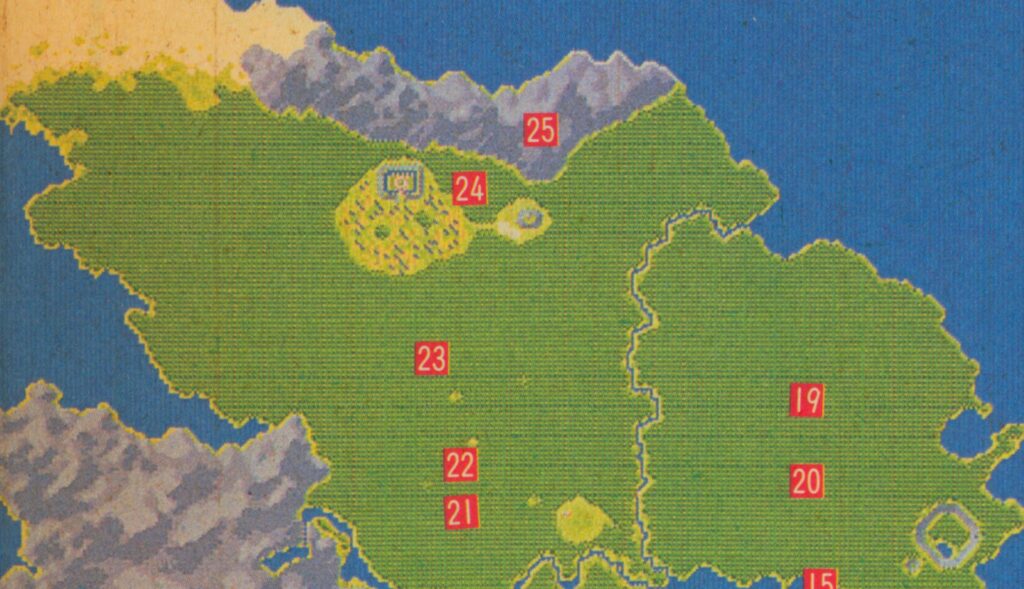

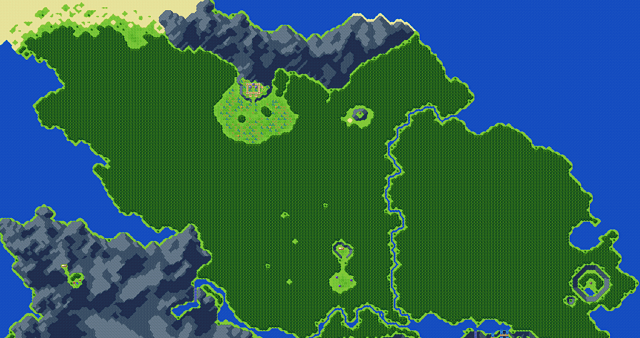
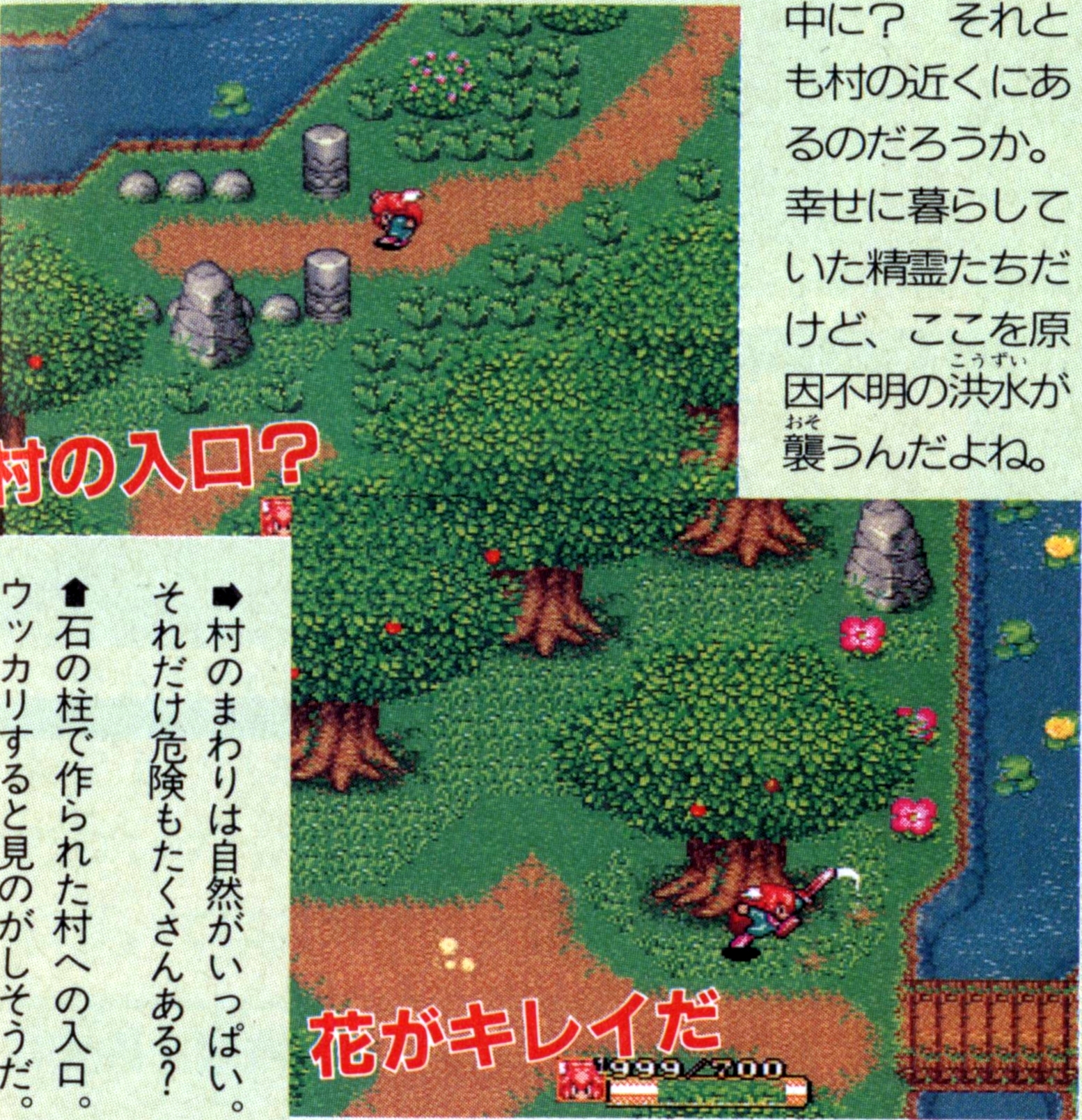
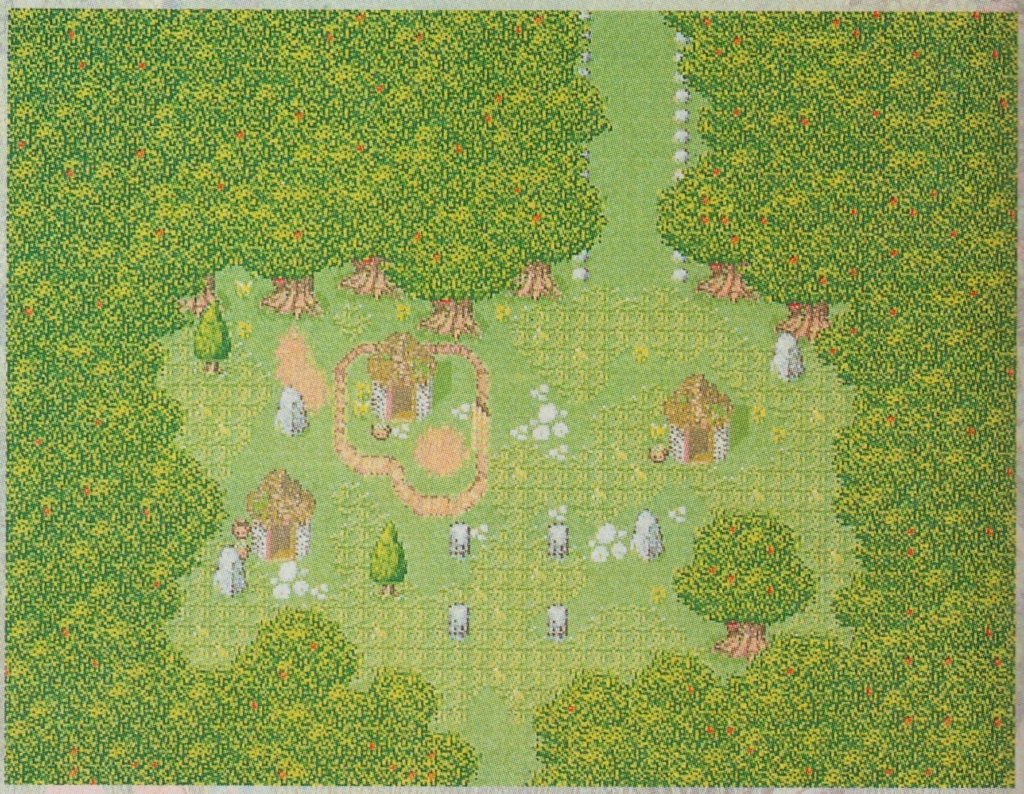
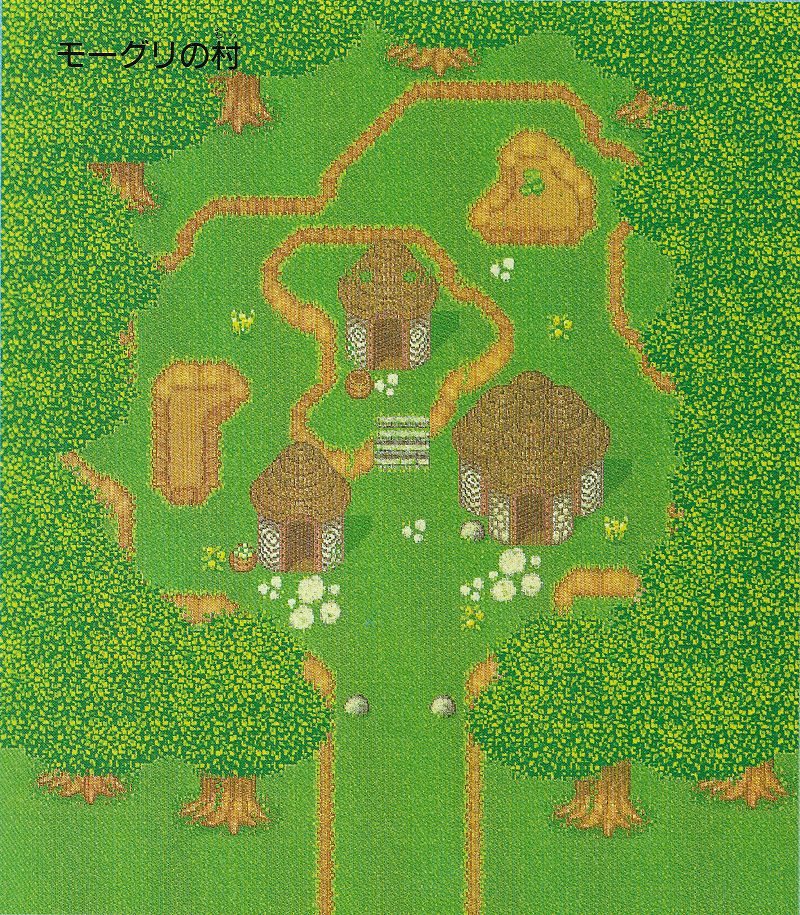
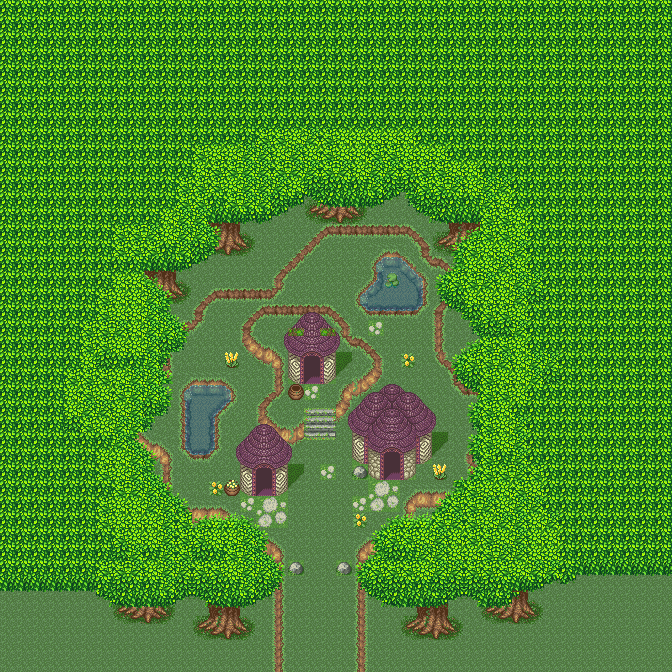
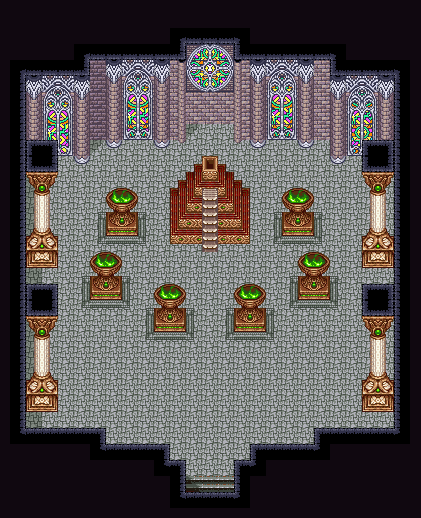
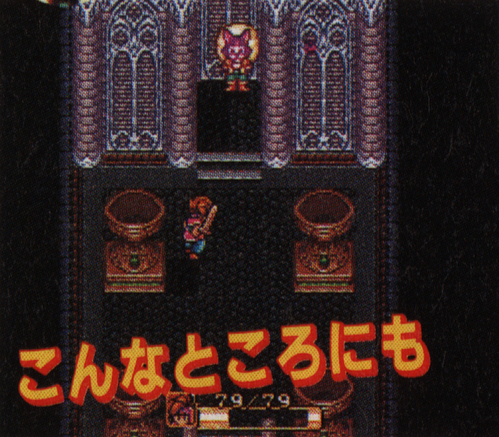
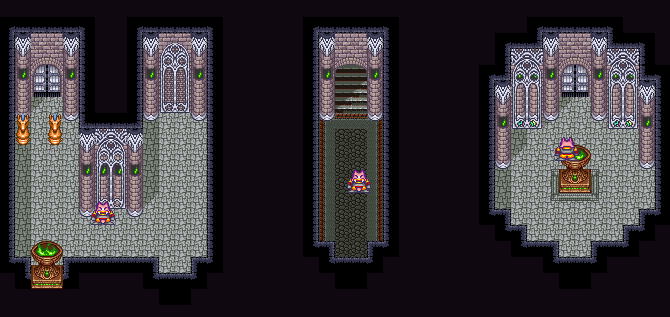
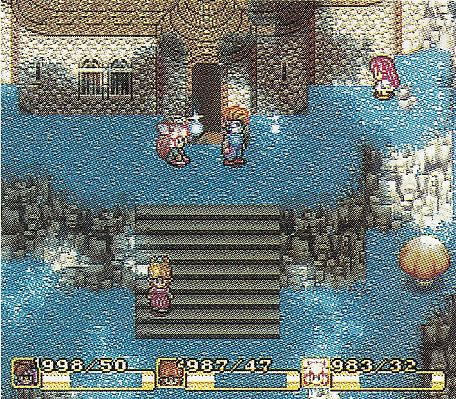
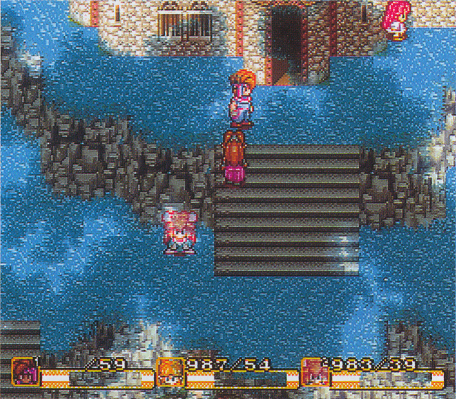
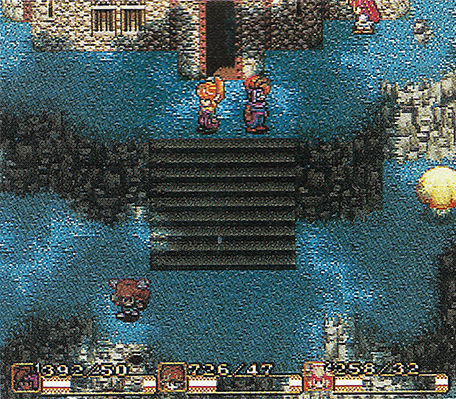
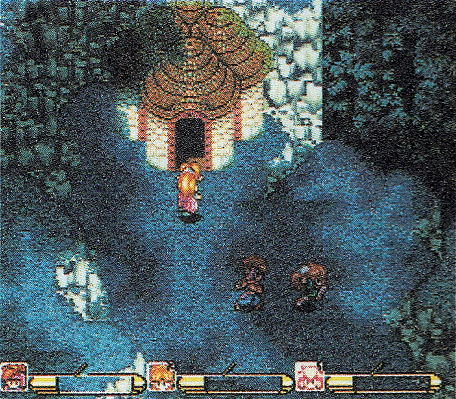
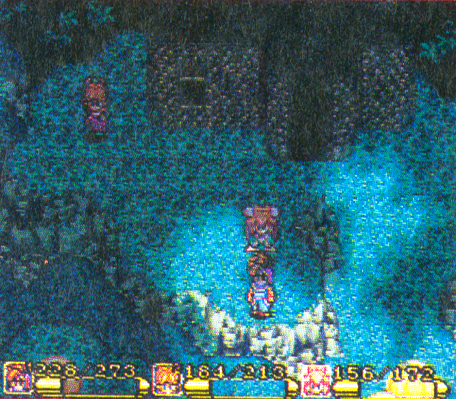
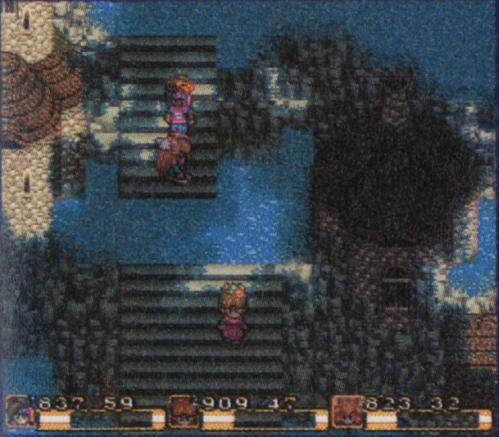
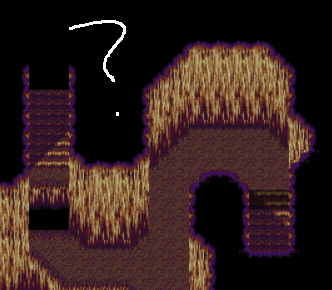
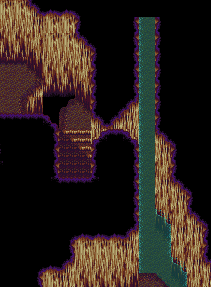
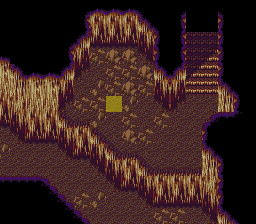
Always enjoyed upper land, With it’s shifting seasons and rocking Matango music. Plus how thee music shifts from echoing in the cave right before into the base version of the song.
One of the most memorable parts in the game was seeing the pink forests of spring, And is something i look very fondly upon 🙂